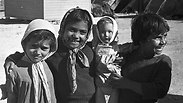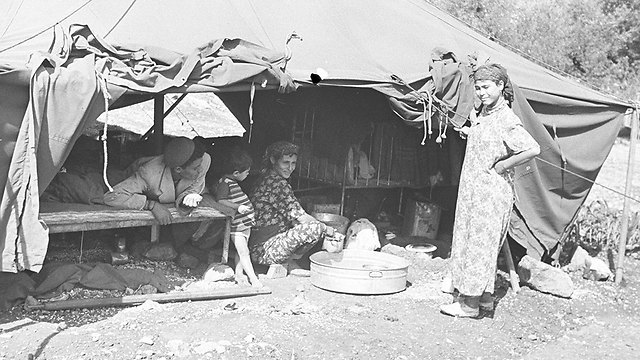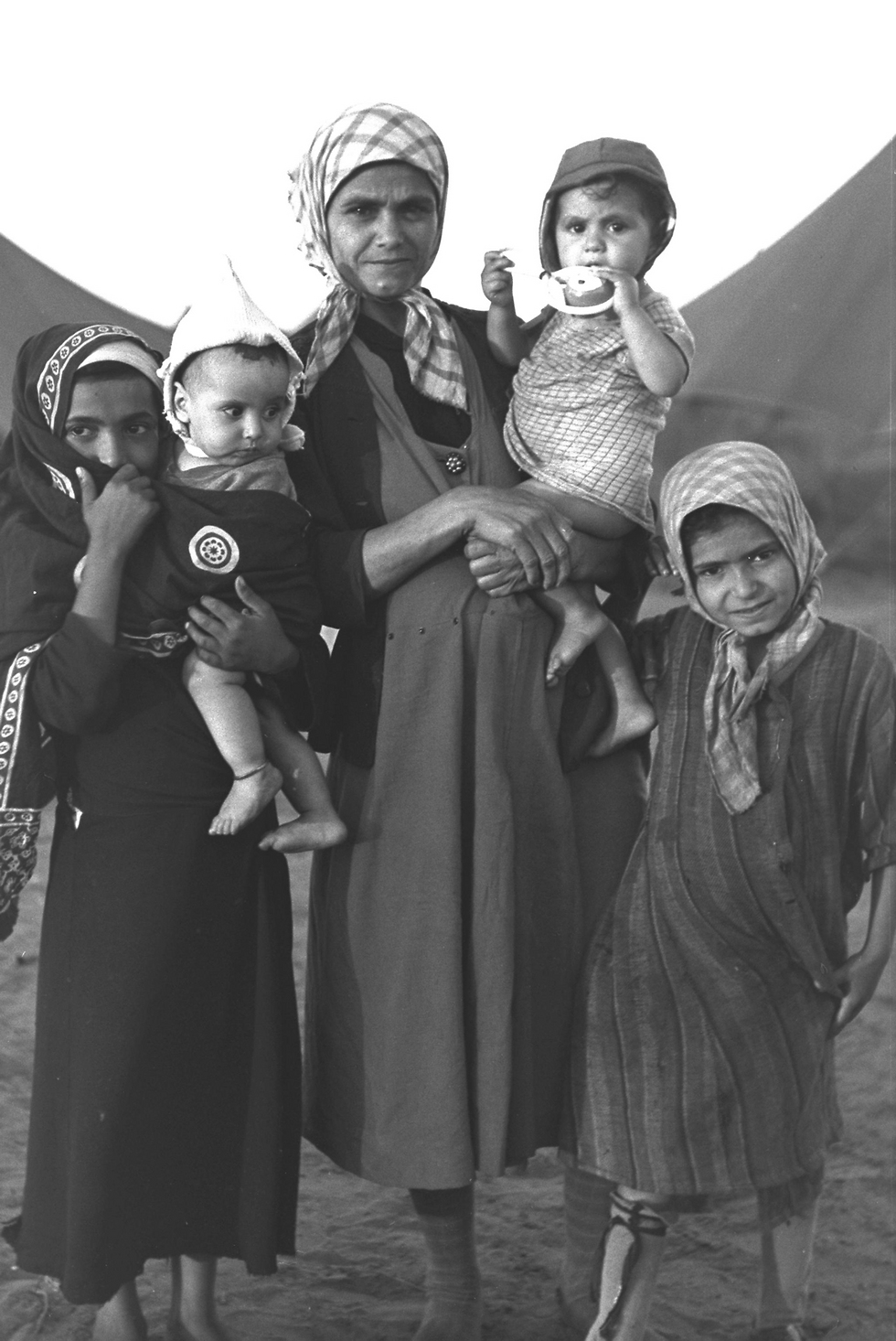

Yemenite immigrant asked Ben-Gurion to help find his son
The thousands of documents declassified by the Israel State Archives from the Yemenite children’s affair contain a mass of unique stories, including the father who sought the prime minister’s help in searching for his missing wife and son, and a doctor who blamed Yemenite Jews for using ‘six consecutive names which no one could understand.’
Some of the thousands of documents that were declassified on Wednesday relating to the Yemenite children affair reveal a story indicating that Israel’s first Prime Minister David Ben-Gurion was allegedly approached by an immigrant from Yemen, Yosef Avraham, for help in locating his missing wife and son in 1949.
Follow Ynetnews on Facebook and Twitter
Avraham arrived in Israel with his wife Ktzia, their daughter Mazal and their one-week-old son Tov. They landed at the Lod Airport and were sent to the Pardesiya transit immigrant camp, where they were all medically examined and hospitalized. Avraham recovered a week later, but was unable to find his wife and children.
With the assistance of his relatives, he managed to locate his daughter, but his wife and son were nowhere to be found.
“A policeman gave me a note with the address of the Prime Minister’s Office in Jerusalem. He recommended that I go to there and tell Ben-Gurion my problem,” Avraham said. Amazingly, he managed to meet with the prime minister directly.
“I told him what happened and where I lived, and I asked him to help find my wife and the baby. In my presence, he telephoned a few people and asked them to urgently find out where they were.”
Avraham returned to Pardesiya after Ben-Gurion gave him money for public transportation. The next day, he was visited by two policemen and a policewoman, and together they conducted an extensive search.
Despite the efforts however, his wife and son were not found and an investigation revealed that they had both passed away.
Some 3,500 files relating to the Yemenite children affair—the mysterious disappearance of thousands of Yemenite babies and toddlers between 1948 and 1954—were declassified by the Israel State Archives on Wednesday, following a public and media protest and pressure placed on the government by many families.
The files contain 210,000 documents which can be accessed on the archive’s website, and will now enable family members to finally learn the fate of thousands of children, while researchers will be able to enter into personal files, examine where they were buried and their causes of death. Among these files, the archive workers found additional unique stories.
Dr. Amster was the first woman physician at Rambam Hospital’s children’s clinic, which opened in January 1949. She worked at the hospital till 1953. In 1996, she testified about her work before the Kedmi Commission, which was appointed to look into the Yemenite children’s affair. Her testimony is revealed for the first time in the exposed protocols.
“The children arrived at the clinic in a very bad state. I would get called to the emergency room and there would be five, six, eight or ten who arrived at the same time, very sick. They were in serious condition. I went to the ER and I looked at the children … They were in such a bad state that they were immediately given infusions and transfusions and all kinds of treatments. The children were dehydrated and very thin,” she recalled.
Asked if the treatment the children received was successful, she replied: “They did not recover. One night I saw six children die. Most of them were from Yemen. I will never forget that night.”
She noted that there were some children who did recover, but that the hospital staff did not know their names. “The names were a big problem. Every Yemenite child had many names. We didn’t know what the surname was and what the first name was. We didn’t even see the parents.”
After the healthy children were discharged to guesthouses or foster homes, they lost contact with the hospital staff, said Amster who also testified that she did not know what happened to them.
The complexity of the names in the Yemenite community is also reflected through the story of Sliman Moshe Bahajali, who turned to President Yitzhak Ben-Zvi in February 1954 and asked for help in locating his missing son. The president’s bureau approached the Jewish Agency, the Israel Police, the Health Ministry and the Interior Ministry in search of the lost child.
In a response to the president’s bureau, which was defined as “highly confidential,” Dr. M. Yahel, manager of the hospital division at the Health Ministry, blamed the Yemeni Jews’ habit of not using surnames, but rather “six consecutive names which no one could understand.” He also blamed the great confusion during the immigration period and the unprofessional manpower and shortage of workers. He accused parents of failing to pick up their children from the hospital, and even claimed that due to the good treatment the children had received, some parents did not recognize them when they arrived to pick them up.
In his response, Yahel mentioned what he called “the rumor” that “the white Ashkenazim convey messages about babies’ death, and actually steal Yemenite children for those who don’t have children.” The commission’s findings eventually determined that Sliman Moshe Bahajali’s son had died two months after his arrival in Israel and had been buried the next day.
The archivists detected a similar pattern in most of the testimonies of the families whose children disappeared. Shortly after immigrating to Israel, the families moved to an immigrant camp and the parents were required to put their babies and toddlers in a babies’ house. For a while, the mothers would arrive to nurse and feed them, until one day they were told that their toddler had been taken to the hospital due to an illness. After a while, they were informed that the child had died.

















